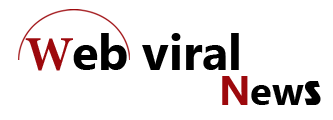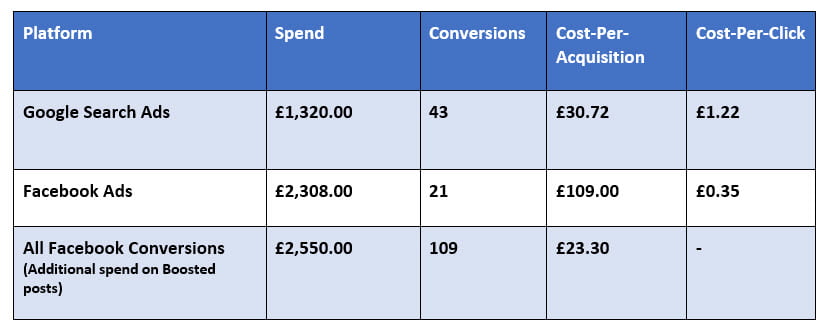Google AdWords enables you to target users who are actively searching for your products or services. You can also use remarketing to target those who have visited your website and didn’t convert.
Facebook ads, on the other hand, are used by people who are in a leisure or browsing mood. They’re a great way to build brand awareness and cultivate loyal customers over time.
Cost-per-click
When choosing an ad platform, it’s important to consider both the cost-per-click and the conversion rate. These are the two key metrics that help marketers understand their advertising spend and how successful their campaigns are. The best PPC platforms are those that offer high ROI and low cost-per-click. These platforms also provide a range of data and tools to optimize your ads.
Both Google Ads and Facebook Ads have their own advantages and disadvantages, but the right one for your business depends on your goals. While Google is ideal for top-of-funnel campaigns, such as brand awareness, Facebook is more effective at mid-funnel and bottom-of-funnel campaigns. Facebook offers a wide variety of targeting options, including demographics, interests, lifestyle, and life events, while Google primarily uses keywords to target potential customers.
While the CVR on Facebook is lower than on Google, the ad engagement rates are higher, and this can result in a greater number of conversions for your business. In our study, we saw that Construction Companies had the highest conversion rate at 5.13%, followed by Real Estate & Home Builders and SMBs. However, ad fatigue is often a factor in these industries, so you may need to adjust your targeting to improve clickthrough rates. Similarly, Facebook’s retargeting capabilities allow you to target people who have already visited your website or engaged with your videos.
Cost-per-conversion
Cost-per-conversion is a key metric to track in your PPC campaign. It measures the number of conversions you receive per ad click, including sales, sign-ups, or other desired actions. You can also use this metric to determine how effective your campaigns are at reaching the right customers at the right time.
Both Google Ads and Facebook Ads are powerful marketing tools that can help you achieve your business goals. Both offer a wide range of advertising options, from simple text ads to more complex visual ads. However, it’s important to remember that the two platforms should be used in concert, rather than in opposition.
If you’re looking to increase brand awareness, Facebook Ads is a great option because of its high monthly active users. It can target specific audiences by their age, location, and interests, as well as provide retargeting options to help you reach new customers. Google Ads, on the other hand, is more focused on driving traffic to your website and converting them into leads.
Both platforms have their own strengths and weaknesses, but both can be used to drive more conversions for your business. Ultimately, the best choice for you will depend on your budget, your marketing expertise, and the type of products or services you sell. It’s also important to keep in mind that both platforms are constantly evolving, so you should always be on the lookout for new ways to improve your performance.
Cost-per-lead
The cost-per-lead is one of the most important metrics in online marketing, and it can help you measure the effectiveness of your lead generation campaigns. It’s also a good way to gauge the overall effectiveness of your marketing budget. It allows you to discover the channels that are working and those that need a little tweaking.
The term “cost per lead” refers to the number of leads a business generates for every dollar it spends on marketing campaigns. This metric is used to assess the efficiency of online marketing campaigns and can be calculated by using a simple formula. To calculate your cost-per-lead, simply divide your total marketing spend by the number of new leads.
Defining the best cost per lead does depend on your industry and business model. For example, if your product or service sells for $100, then a high-cost-per-lead may not be too bad for you. However, if your business is generating millions of dollars in revenue each year from a single customer, then you need to be sure that your marketing efforts are delivering.
Using this metric can help you make smart decisions about how to allocate your advertising spend and improve your conversion rate. It can also help you avoid wasting money on unproductive ads. For example, if you find that your Google Ads aren’t producing enough leads, try changing your bidding strategy or using different keywords.
Cost-per-sale
If you’re looking to grow your business, cost-per-sale is a key performance indicator that can help you understand the success of your ads. This KPI is used to measure the total cost of acquiring a customer and can help you determine how much you need to spend on your ad campaigns. It also allows you to compare your results with other businesses in the same industry.
Google Ads is a pay-per-click advertising platform that can be used to generate traffic and sales for your website or store. It has a wide variety of advertising formats and can be incorporated into other Google products, such as YouTube videos and mobile search ads. It is especially effective for businesses that sell products online or want to promote their brands.
Facebook Ads is another paid advertising platform that offers a variety of ad options. They can be placed in the news feed, Instagram news feed, and even Facebook stories. They can be highly targeted based on demographics, interests, and even past behavior. They can also be retargeted to reach people who have already visited your site or purchased your products.
While Facebook Ads can be more expensive than Google ads, they tend to convert better. The average Google ad conversion rate is 4.4%, while the average Facebook ad conversion rate is 9.2%. This difference is largely due to the different advertising platforms and targeting options.






More Stories
SEO Off Page Activity On Top Of Page
The Top SEO Hacks For New Bloggers
5G Availability: Phones and Providers Currently Offering the Network